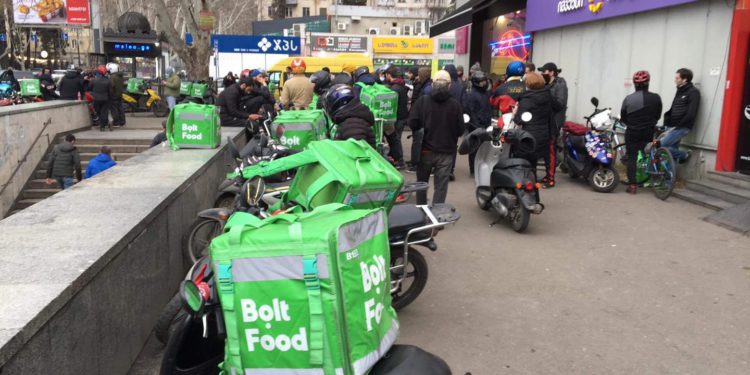International organization Human Right Watch (HRW) reviews the working conditions and environment at app-based jobs in Georgia offering a delivery service.
For the past few months there have been two strikes by couriers working for Glovo and Bolt Food. They were protesting the set of company policy changes that started in summer 2020, which included decreased per-order compensation and performance bonus targets that couriers call unrealistic, because of which they “risk working themselves to exhaustion, which risks more accidents,” organization stated.
“These app-based employers offer a seductive pitch for would-be couriers, especially in a time of high unemployment: flexible hours and plenty of work. But things soured quickly.
“The strikers also raised a concern that the combination of shrinking per-order fees and ambitious bonus targets impacts workplace safety, an issue Georgian workers have long struggled with, outside the app-based economy.
“Glovo’s current terms require completing 180 orders per week to hit the highest bonus tier, meaning couriers must fill an average of 2 orders hourly, working 90 hours per week. Bolt Food requires couriers to deliver 20 orders per day to receive a bonus.” HRW statement says.
Human Rights Watch also talks about the links between “unrealistic performance targets and poor workplace safety in Georgia’s mines, and connections have been well established in other sectors.”
As the organization stated, they addressed both companies with the letters expressing the above-mentioned concerns. In their response, Bolt Food denied the risk with safety issues. Glovo has yet to respond to the organization’s request for comment.
“As the app-based economy is expected to grow further, the Labor Inspectorate should prioritize systematic and regular inspections of these companies,” HRW said.
By Ana Giorgadze














